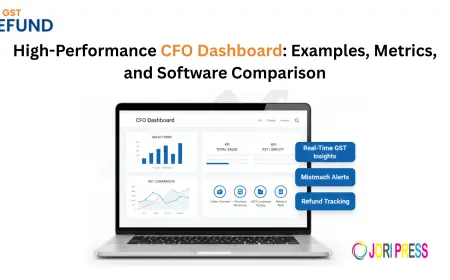Quantum Warfare Market 2030 Size and Share Statistics with Global Forecast
Industry Key Highlights
According to TechSci Research report, “Quantum Warfare Market - Global Industry Size, Share, Trends, Competition Forecast & Opportunities, 2030F, The Global Quantum Warfare Market was valued at USD 1.63 billion in 2024 and is expected to reach USD 4.07 billion by 2030 with a CAGR of 16.48% through 2030. This exponential growth is driven by the urgent global need to counter rising cybersecurity threats, enhance defense communications, and develop advanced surveillance systems. As traditional warfare tactics become obsolete, defense agencies and governments across the world are racing to harness the power of quantum mechanics to gain superiority across land, air, sea, and space.
Request For Sample Copy of Report For More Detailed Market insight: https://www.techsciresearch.com/sample-report.aspx?cid=26998#requestform
The global landscape of warfare is undergoing a radical transformation, shaped by technological advancements and shifting geopolitical realities. At the forefront of this evolution is the Quantum Warfare Market, which combines the might of quantum computing, quantum communication, and quantum sensing technologies to offer nations a formidable strategic edge.
Emerging Trends in the Quantum Warfare Market
1. Quantum Cybersecurity: A Fortress Against Evolving Threats
One of the most disruptive trends in modern warfare is the emergence of quantum-resistant cybersecurity. Quantum computers are poised to break conventional encryption algorithms, making current defense mechanisms vulnerable. This has led to an increased demand for quantum key distribution (QKD), a revolutionary encryption technology based on the principles of quantum mechanics. QKD allows secure communication that can detect any eavesdropping or intrusion attempts, safeguarding highly sensitive military information.
Browse over XX market data Figures spread through XX Pages and an in-depth TOC on the "Global Quantum Warfare Market"@https://www.techsciresearch.com/report/quantum-warfare-market/26998.html
2. Quantum Radar and Detection
Quantum radar is redefining how militaries detect and monitor threats. Unlike conventional radar, quantum radar can identify stealth aircraft and submarines with remarkable precision, using entangled photons and quantum superposition to bypass traditional detection limitations. This technology not only improves accuracy but also offers greater resistance to jamming and spoofing.
3. Quantum Sensors for Real-Time Surveillance
The development of quantum sensors offers defense forces real-time tracking and location accuracy that surpasses GPS technology. These sensors can operate in environments where GPS fails, such as underwater or in space. Their potential applications include missile guidance, troop movement detection, and battlefield mapping.
4. Defense Integration with AI and Quantum Simulations
The combination of quantum simulations and artificial intelligence is accelerating the modeling of complex battlefield scenarios. This helps military strategists predict outcomes with greater accuracy, optimize logistics, and design more effective countermeasures.
Key Market Drivers
1. Rise in Cyber Threats Targeting Military Systems
As cyberattacks become more sophisticated, especially targeting defense databases and infrastructure, quantum-based encryption becomes a necessity. Governments are heavily investing in quantum computing to build unbreakable communication systems.
2. Need for Technological Superiority in Global Conflicts
The race for defense innovation is no longer just about having more firepower—it's about having smarter technology. Quantum warfare allows militaries to stay ahead of their adversaries through superior data encryption, faster computing speeds, and precise surveillance capabilities.
3. Government Investments and Strategic Alliances
Countries across North America, Europe, and Asia Pacific are allocating significant defense budgets to quantum technology R&D. Strategic alliances between government bodies and tech companies are fast-tracking innovations, from military satellites equipped with quantum communication to quantum radars deployed at borders.
4. Modernization of Military Infrastructure
With modernization at the core of global defense policies, integrating quantum solutions into legacy systems has become a priority. The military is rapidly adopting quantum technologies to revamp everything from logistics and navigation to command control centers.
5. Space Dominance and Quantum Communication
The shift toward securing space-based assets has led to increased adoption of quantum technologies in satellite communications. Quantum encryption allows nations to transmit sensitive data securely across continents, laying the groundwork for a new era of space warfare.
Application Spotlight: Dominance of Space-Based Segment
The space-based application segment holds the lion’s share of the market and is expected to maintain its dominance through 2030. As nations race to secure space as the next frontier of warfare, quantum-enhanced technologies are becoming indispensable.
From quantum communication satellites that ensure secure cross-continental messaging to quantum sensors that monitor hostile threats in real-time, space-based applications are driving innovation. These systems also support navigation and surveillance, empowering defense forces to detect missile launches, guide weapons with pinpoint accuracy, and anticipate enemy movements across air and sea.
Quantum technologies, when deployed in space, not only boost national security but also reduce reliance on terrestrial systems, which are more susceptible to attacks and interruptions. As nations escalate their satellite deployment programs, the demand for quantum-enhanced space defense systems will continue to grow.
Regional Insights: Asia Pacific Leads the Surge
Among the global regions, Asia Pacific is witnessing the fastest growth in the quantum warfare domain. Countries like China, India, and Japan are aggressively investing in quantum R&D and defense modernization.
-
China has already launched quantum communication satellites and is building a robust quantum infrastructure for defense.
-
India, through national missions, is focusing on indigenizing quantum technologies with strategic applications in the navy, air force, and space programs.
-
Japan is exploring hybrid defense models by integrating quantum computing with conventional defense systems.
The strategic importance of securing borders, maritime zones, and airspace—combined with heightened geopolitical tensions—is driving quantum technology adoption across the region. With increased government funding and a burgeoning tech ecosystem, Asia Pacific is poised to be a dominant force in the global quantum warfare arena.
Key market players in the Quantum Warfare Market are: -
- IBM Corporation
- Microsoft Corporation
- Google LLC
- Honeywell International Inc.
- Intel Corporation
- RTX Corporation
- Lockheed Martin Corporation
- D-Wave Systems Inc.
- Rigetti Computing, Inc.
- Atos SE
Customers can also request for 10% free customization on this report.
Contact US:
Techsci Research LLC
420 Lexington Avenue, Suite 300,
New York, United States- 10170
Tel: +13322586602
Web: https://www.techsciresearch.com/
What's Your Reaction?
 Like
0
Like
0
 Dislike
0
Dislike
0
 Love
0
Love
0
 Funny
0
Funny
0
 Angry
0
Angry
0
 Sad
0
Sad
0
 Wow
0
Wow
0



















































